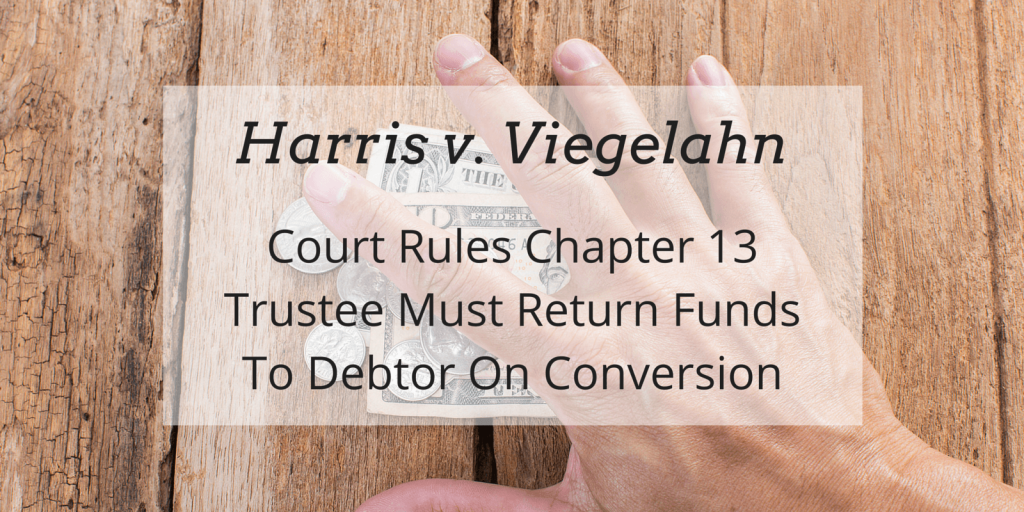On May 18, 2015 the U.S. Supreme Court unanimously held that a debtor who converts to Chapter 7 is entitled to return of any postpetition wages not yet distributed by the Chapter 13 trustee.
The Court, in Harris v. Viegelahn, involved the case of Charles Harris III who filed for Chapter 13 bankruptcy after he fell behind on his mortgage payments. Though his Chapter 13 Plan provided that he would repay his mortgage arrears over time while making new payments to the mortgage company, he fell behind on those new payments within a few months.
Just nine months after filing his Chapter 13 Plan, the mortgage company got court approval to move ahead with foreclosure. The house went back to the mortgage company, but the Chapter 13 trustee kept receiving the Plan payments.
Without mortgage arrears, the Chapter 13 trustee held onto the funds. And when Mr. Harris finally decided to convert his bankruptcy case to one under Chapter 7 he wanted his money back.
Rather than giving Mr. Harris back his money, the Chapter 13 trustee got rid of the money by sending $1,200 to Harris’ lawyer for unpaid legal fees, paying herself a $267.79 fee, and distributing the rest of the money to Harris’ creditors.
The Court noted that absent a bad-faith conversion, §348(f) limits a converted Chapter 7 estate to property belonging to the debtor “as of the date” the original Chapter 13 petition was filed. Postpetition wages, the Court held, do not fit that bill.
As to postpetition wages held by a Chapter 13 trustee at the time the case is converted to Chapter 7, Court concluded that they must be returned to the debtor because §348(f)(1)(A) removes those earnings from the pool of assets that may be liquidated and distributed to creditors.
In other words, conversion takes the money out of the trustee’s control unless there was bad faith on the debtor’s part. A Chapter 13 trustee is no more – he or she is now only a former Chapter 13 trustee. And a former Chapter 13 trustee has no authority to distribute payments in accordance with a Chapter 13 Plan.
The brilliant minds at the National Consumer Bankruptcy Rights Center submitted an amicus brief in support of the debtor’s position. If you’re in a position to do so, you should consider contributing to NCBRC.
